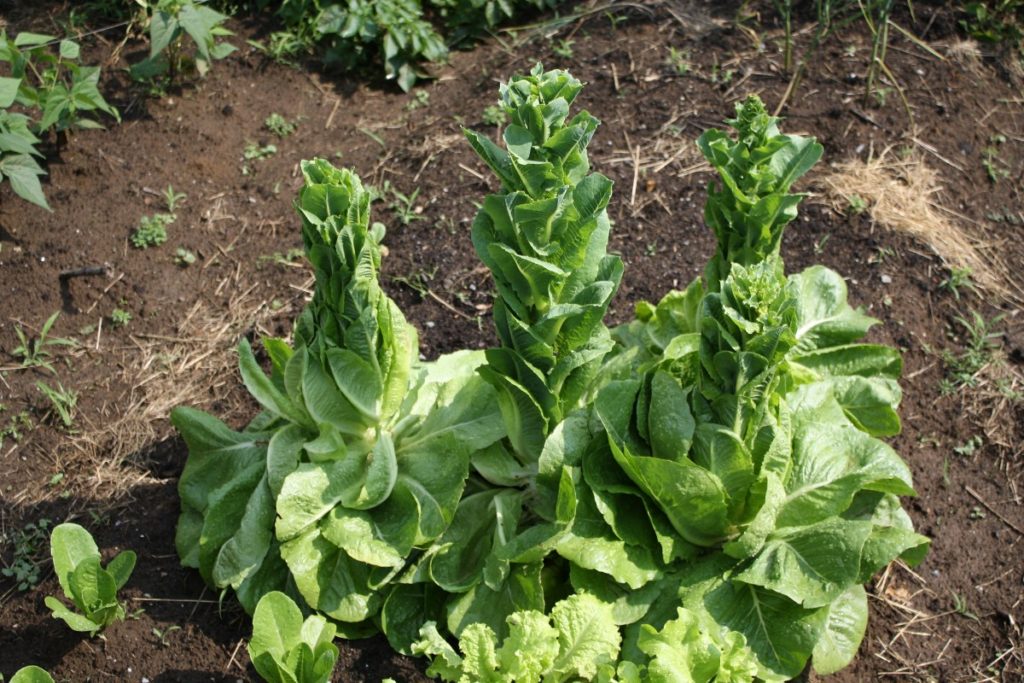20 May is designated as World Bee Day ~ but every day should be Bee Day. 75% of crops and 90% of other plants need pollinators, of which bees make up the largest proportion.
As pollinators, bees play a part in every aspect of the ecosystem. They support the growth of trees, flowers, and other plants, which serve as food and shelter for creatures large and small. Bees contribute to complex, interconnected ecosystems that allow a diverse number of different species to co-exist.
Supporting bees
- Consciously grow a wide variety of trees, shrubs and plants that will provide bee food at different times of the year. We are told that they are particularly attracted to blue, violet, white and yellow flowers. They are also attracted by strong, sweet scents.

Lettuce that has bolted. - Cut the grass in your fields only after the nectar-bearing plants have finished blooming.
- Where you have planted a single crop, allow a border of wild plants to grow round the edges of your field, which will provide a diverse source of food. Bees rely on a wide variety of both indigenous and exotic forage. And don’t forget that flowering weeds are very important food sources for bees.
- Limit your use of insecticides and try to find ones that are bee friendly. Spray at night and when there is no wind. Fungicides and herbicides are also dangerous to bees.
- Allow a few of your vegetables to bolt. Leafy crops like lettuce that are left to flower give bees additional food sources.
- In winter put out water that has been sweetened to supplement the limited resources during cold weather.
Educate people in your family and community about the value of bees ~ we are all affected by their decline.

